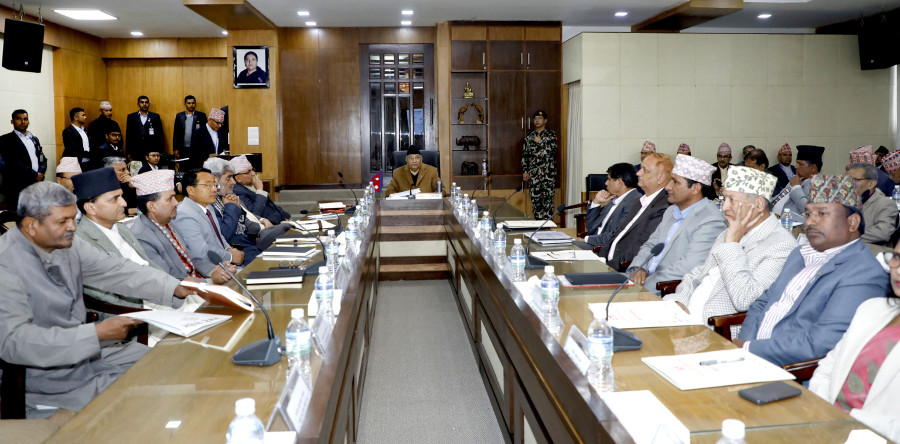National
Provincial and local governments barred from signing aid agreements with foreign donors
New standards on foreign aid endorsed by the Cabinet last week make Centre’s role necessary in accessing resources.
Prithvi Man Shrestha
Provincials and local governments can hold initial discussions with donors for potential financing of their projects but they should approach the federal government to negotiate with the prospective donors, according to a new standard on foreign aid mobilisation endorsed by the Cabinet.
As per the standard, the provincial and local governments need to now seek the Centre’s opinion for preparatory works for receiving foreign aid and getting foreign funding for their programmes and projects.
Shreekrishna Nepal, chief of the International Economic Cooperation Coordination Division at the Finance Ministry, told the Post that after a provincial or local government seeks approval, the Finance Ministry would examine the project’s feasibility after consulting with the relevant federal ministry. It then can give its approval for necessary preparations for the project.
But the sub-national governments will have no right to sign an agreement with donors. In case of aid agreement prepared and signed by the federal government, the aid will be mobilised through the federal government’s budgetary system.
“The federal government will provide such aid to the provincial and local governments in the form of conditional grants,” said Nepal.
The conditional grant is one given to a provincial or local government to finance a particular project where they cannot decide which project to finance.
But the federal government can negotiate with donors, at the request of the provincial and local governments and receive the aid, according to the new standards.
“If the foreign grant is received as per the request of the provincial or local government, the federal government will provide such amount too as a conditional grant,” said Nepal.
The provincial and local governments can also receive loans from donors. For this, they can hold preliminary discussions with prospective donors but they have to convince the federal government that the venture is profitable and can generate enough revenue and strengthen the capacity of the concerned sub-national government.
“The Centre can then start negotiations with the prospective donors on the terms and conditions of the loan and receive the amount to be given to the concerned provincial or local government,” said Nepal.
He added: “The Centre will provide such loans for the concerned sub-national government by signing a subsidiary agreement with the concerned provincial or local government. The responsibility of paying back the loan lies on the shoulders of concerned provincial or local government.”
Under the subsidiary agreement, the interest rate on the loan to be charged by the Centre to a local or provincial government will be higher than the foreign donor’s rate since the federal government will be taking the foreign exchange risk.
The federal government has been providing foreign loans for state-owned enterprises like the Nepal Electricity Authority. In line with the International Development Cooperation Policy-2019, provincial and local governments can seek foreign loans, particularly in the infrastructure sector where a return can be guaranteed.
The policy says the foreign concessional loans can be used in physical infrastructure such as hydropower, solar and renewable energy, roads and bridges, irrigation, airports, railways, dry ports, and urban infrastructure development, agriculture and tourism infrastructure and in areas contributing to skills development and job creation.
Loans received from foreign export-import banks can be used only in hydropower generation and transmission; highways and bridges; railways; airports; dry ports and urban infrastructure, besides any other area of national priority.
In the case of aid to be received through international and domestic non-government organisations, the provincial and local governments have to ensure that the investment falls within their priorities.




 8.79°C Kathmandu
8.79°C Kathmandu















